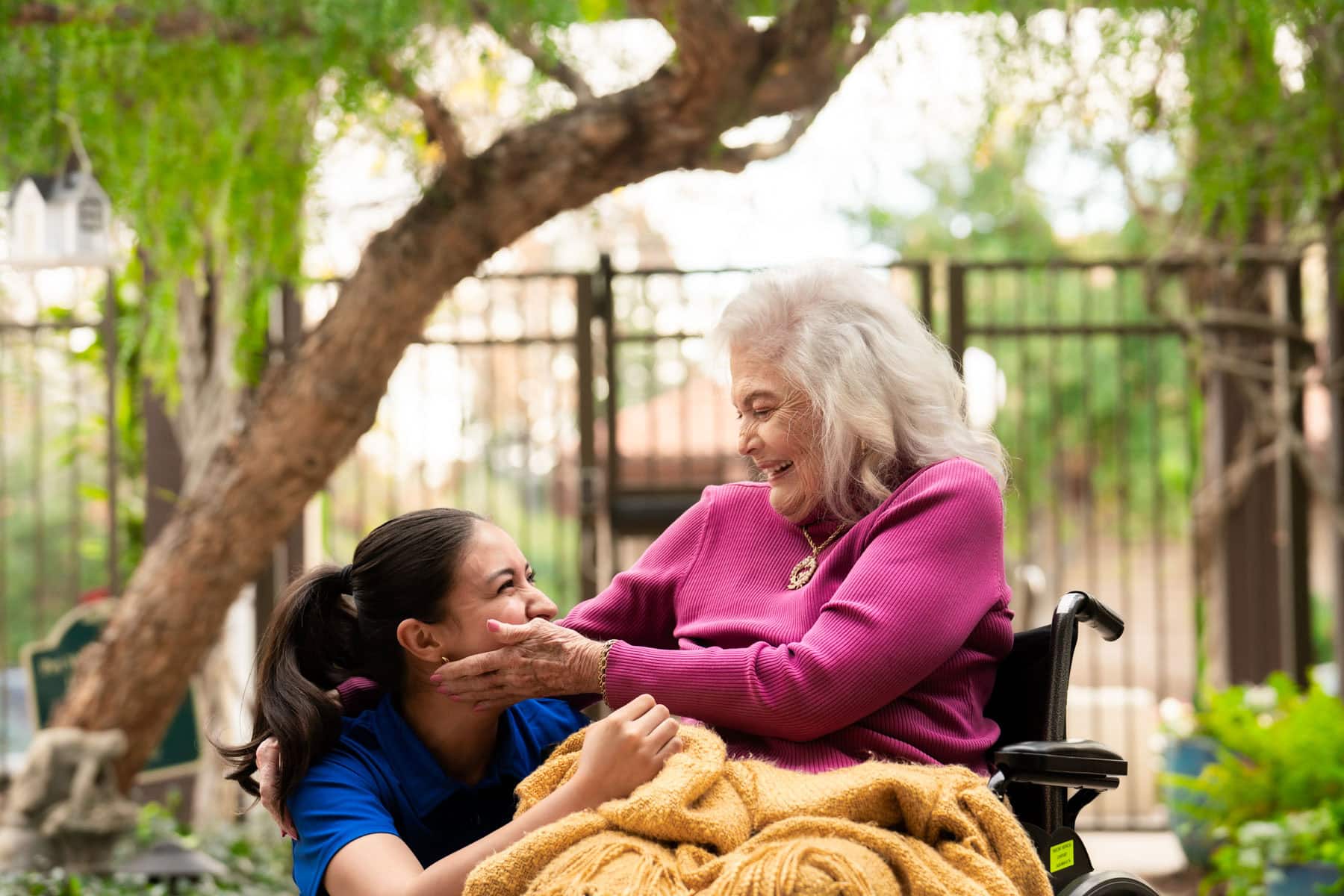Not all memory lapses are simply “getting older.” When you notice sudden, sharp changes in your loved one’s thinking or behavior, it’s more than a normal shift, it’s a sign of rapid cognitive decline and needs prompt action.
Putting off intervention can risk safety and well-being. By learning to spot the key warning signs, and knowing when to treat them as an emergency, you help protect your loved one’s health, dignity, and quality of life.
At Kensington Senior Living, we’re here to guide you every step of the way.
Our promise is to love and care for your family as we do our own.
What Is Rapid Cognitive Decline?
Rapid cognitive decline refers to a noticeable and sudden drop in cognitive abilities, often occurring over days or weeks. Symptoms are more noticeable than the gradual progression of dementia or Alzheimer’s disease.
Cognitive decline symptoms might include:
- Abrupt memory loss
- Disorientation in familiar environments
- Difficulty with language or speaking
- Hallucinations or delusions
- Personality or mood changes
- Trouble completing once-familiar tasks
Such rapid deterioration could signal an underlying medical issue.
Causes of Rapid Cognitive Decline
Sudden cognitive changes are often the result of more than just Alzheimer’s or dementia progression. Some of the most common causes include the following.
Infections and Illnesses
Urinary tract infections (UTIs), pneumonia, and sepsis often trigger delirium and rapid decline in seniors, especially those already struggling with memory issues.
Medication Side Effects
New prescriptions or interactions between medications can quickly impact cognitive function. Sedatives, antipsychotics, or even over-the-counter antihistamines may contribute.
Stroke or Transient Ischemic Attack (TIA)
A stroke can instantly affect brain function. Even mini-strokes (TIAs) can cause subtle but immediate changes.
Dehydration or Malnutrition
Basic health needs can go overlooked in seniors. A lack of fluids or essential nutrients can impair cognitive performance nearly overnight.
When ‘Wait and See’ Is Dangerous
In the early stages of cognitive decline, families often assume that these changes are temporary or tied to stress, fatigue, or minor illness. But with rapid cognitive decline, time is of the essence.
Putting off decisions with a “let’s wait and see” mindset can mean:
- Hidden Issues Grow: Conditions like Frontotemporal Dementia (FTD) can advance quickly. Delaying care lets symptoms worsen unchecked.
- Higher Safety Risks: As changes accelerate, the chance of falls, accidents, or hospital stays climbs, and every incident carries emotional weight.
- Lost Intervention Opportunities: Early therapies and treatments work best when started promptly. Waiting can close that window for meaningful support.
- Strain on Everyone: Uncertainty and mounting challenges can leave both your loved one and your family feeling anxious and overwhelmed.
Learning how normal forgetfulness differs from urgent red flags is so important.
Warning Signs You Shouldn’t Ignore in Your Loved One
- Sudden confusion or disorientation
- Trouble recognizing familiar people
- Inability to carry out daily tasks
- Paranoia, aggression, or drastic mood swings
- Wandering or getting lost
- Repeated falls or balance issues
- Incontinence or neglect of hygiene
If your loved one is exhibiting these behaviors, don’t delay. Contact their medical care provider right away.
What to Do if You Suspect Rapid Cognitive Decline
1. Document the Symptoms
Start a journal. When did the changes begin? What’s different? This can help doctors identify patterns and possible triggers.
2. Seek Medical Evaluation Immediately
Visit a primary care physician or neurologist for a comprehensive cognitive and physical exam, blood work, and possible imaging like CT or MRI.
3. Review Medications
Bring a full list of medications (prescriptions, supplements, and over-the-counter drugs) for review.
4. Consider Hospitalization if Necessary
If the person is a danger to themselves or others or shows signs of severe medical distress, hospitalization may be warranted.
Could It Be a Progression of Dementia?
For individuals already diagnosed with dementia or Alzheimer’s, the rapid decline may reflect disease progression.
However, changes that occur in days rather than months still demand a medical evaluation. Even in progressive diseases, sharp drops are not typical and may indicate complications.
Planning Ahead: The Role of Memory Care
When cognitive decline accelerates, a higher level of care is often necessary.
Memory care communities such as Kensington Senior Living can provide:
- 24/7 supervision and safety
- Medication management
- Support for activities of daily living
- Engaging cognitive therapies
- Emotional support for families
Transitioning to memory care can be a difficult decision, but when symptoms escalate, it can greatly improve quality of life and reduce family stress.
Don’t Wait and See What Happens; Call Kensington Senior Living Today
Recognizing rapid cognitive decline early can make the difference between treatable symptoms and irreversible damage. Whether it’s a sudden onset of confusion or an alarming shift in behavior, taking action is always the better option.
If you suspect your loved one is experiencing rapid cognitive decline, don’t hesitate. Talk to medical professionals, review their medications, and consider whether enhanced care may be the next best step.
And most importantly, don’t “wait and see.” Your loved one’s safety, dignity, and well-being are too important to delay.
At Kensington Senior Living, we are honored to support families with compassion, clinical excellence, and our steadfast Promise to love and care for your family as we do our own.
If you’re navigating the challenges of rapid cognitive decline, you don’t have to do it alone. Contact our Kensington Senior Living team to learn more and take the first step toward peace of mind.



